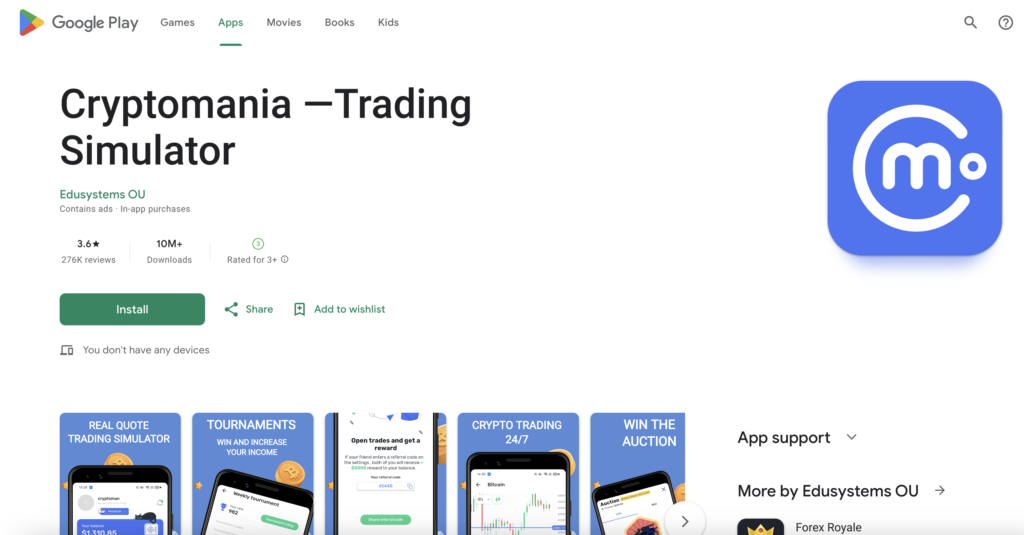
Remember the days of dreaming about monetizing your creativity? Forget starving artists – Canva just handed us the paintbrushes to design our dream careers. Canva templates have become a popular and lucrative source of income for many creators. With the right strategies and a well-executed plan, it is possible to earn $5,000 per month by selling Canva templates. This guide unlocks the secrets to earning $5,000 monthly through stunning Canva templates, no experience is needed! Buckle up, fellow makers, as we embark on a journey where passion meets profit, one click at a time.

Market Research and Niche Selection
Before diving into creating Canva templates, it is crucial to conduct thorough market research and select a profitable niche. Start by identifying popular niches and analyzing your target audience’s preferences and needs. Look for gaps in the market that you can fill with your templates.
To validate your product ideas, visit platforms like Etsy and search for similar templates. Analyze existing listings, customer reviews, and pricing strategies to understand the competition. Take note of what is currently popular and think about how you can differentiate your templates to stand out.

Creating High-Quality Templates
To attract customers and generate sales, it is essential to create high-quality Canva templates. Familiarize yourself with Canva’s features and utilize them effectively to design visually appealing and customizable templates. Consider the different formats and types of templates you can offer, such as social media graphics, ebooks, branding kits, and more.
Ensure that your templates are easy to customize and cater to various skill levels. Keep in mind the specific needs and preferences of your target audience when designing your templates. By providing value and addressing their pain points, you increase the likelihood of success.
Setting Up Your Online Presence
Establishing a strong online presence is crucial for selling Canva templates. Choose a platform to sell your templates, such as Etsy, Gumroad, or your website. Research and compare the features and fees of different platforms to find the best fit for your business.
Create a professional website or shop where you can showcase and sell your templates. Pay attention to branding elements, including your logo, color scheme, and typography, to create a cohesive and memorable brand identity. This will help you stand out and build trust with your customers.
Pricing Your Templates
Determining the right pricing strategy for your Canva templates is essential to maximize your earnings. Consider factors such as the complexity of your templates, market demand, and your target audience’s budget. Experiment with different price points and consider offering bundle deals or discounts to encourage higher sales volumes.
It is also important to keep an eye on market trends and adjust your pricing strategy accordingly. Regularly assess the value you are providing with your templates and make sure your prices align with the market and customer expectations.
Optimizing for SEO and Visibility
To increase the visibility of your Canva templates and attract more customers, it is crucial to optimize your product listings for search engines. Conduct keyword research to identify relevant and popular search terms related to your templates. Incorporate these keywords naturally into your product titles, descriptions, and tags.
In addition to SEO optimization, leverage social media platforms, content marketing, and email marketing to promote your templates. Create engaging and valuable content related to your templates to attract and engage your target audience. Engage with your followers, respond to comments and questions, and build a community around your brand.
Building Your Email List
Building an email list is a powerful strategy to nurture relationships with your customers and promote your Canva templates. Create lead magnets, such as free template samples or design guides, to incentivize visitors to subscribe to your email list. Use email marketing campaigns to communicate with your subscribers, inform them about new template releases, and offer exclusive discounts.
Regularly provide valuable content and insights to your email subscribers to keep them engaged and build trust. Building a strong email list will not only drive repeat purchases but also help you gather feedback and insights from your customers.
Licensing and Legal Considerations
When selling Canva templates, it is essential to understand and comply with Canva’s licensing rules. Familiarize yourself with the terms of use and ensure that you are using the platform within their guidelines. Protect your intellectual property by watermarking your templates and clearly stating the licensing terms on your website or product listings.
Additionally, consider creating terms and conditions that outline the rights and restrictions associated with using your templates. This will help protect your work and provide clarity to your customers.
Customer Support and Feedback
Providing excellent customer support is crucial for building trust and loyalty among your customers. Be responsive to inquiries and provide timely assistance when needed. Encourage customers to leave feedback and reviews, as this will not only help you improve your templates but also attract new customers.
Actively listen to customer feedback and make improvements based on their suggestions. Your customers’ input can be invaluable in refining your templates and enhancing the overall customer experience.
Scaling Your Business
As your Canva template business grows, consider scaling by expanding your product range and exploring collaborations with other creators. Offer new and complementary templates to cater to a wider audience and attract new customers. Collaborate with other creators to create joint template bundles or cross-promote each other’s products.
Additionally, consider outsourcing tasks such as customer support or marketing to free up your time and focus on scaling your business. This will allow you to take on more projects and increase your revenue potential.
Tracking and Analytics
Regularly monitor your sales and revenue to assess the performance of your Canva templates. Analyze customer behavior on your website or shop to gain insights into their preferences and purchasing patterns. Utilize analytics tools to track key metrics and adjust your strategies based on data-driven insights.
By understanding your customers’ behaviors and preferences, you can make informed decisions to optimize your templates and marketing efforts.
Staying Updated
The digital landscape is constantly evolving, and it is important to stay updated with the latest trends and changes. Keep an eye on Canva’s updates and new features to leverage them in your template creation process. Stay informed about industry developments and learn from your competitors.
Continuously seek opportunities to improve your skills and knowledge in design, marketing, and business. Take advantage of online courses, books, and resources to enhance your expertise and stay ahead of the curve.
Resources and Tools
There are various tools and resources available to support your Canva template business. Explore design tools, such as Canva’s advanced features or other graphic design software, to create more complex and unique templates. Utilize SEO tools to conduct keyword research and optimize your product listings for search engines.
Consider joining Canva’s community forums or other online communities to connect with fellow creators, share insights, and seek support. Stay updated with relevant blogs, podcasts, and industry publications to stay informed and inspired.
In conclusion, making $5,000 per month selling Canva templates is an achievable goal with the right strategies, quality templates, and effective marketing efforts. By conducting market research, creating high-quality templates, optimizing for visibility, and providing excellent customer support, you can build a successful business in this lucrative niche. Stay adaptable, stay creative, and continuously improve your skills to thrive in the ever-evolving digital marketplace.




